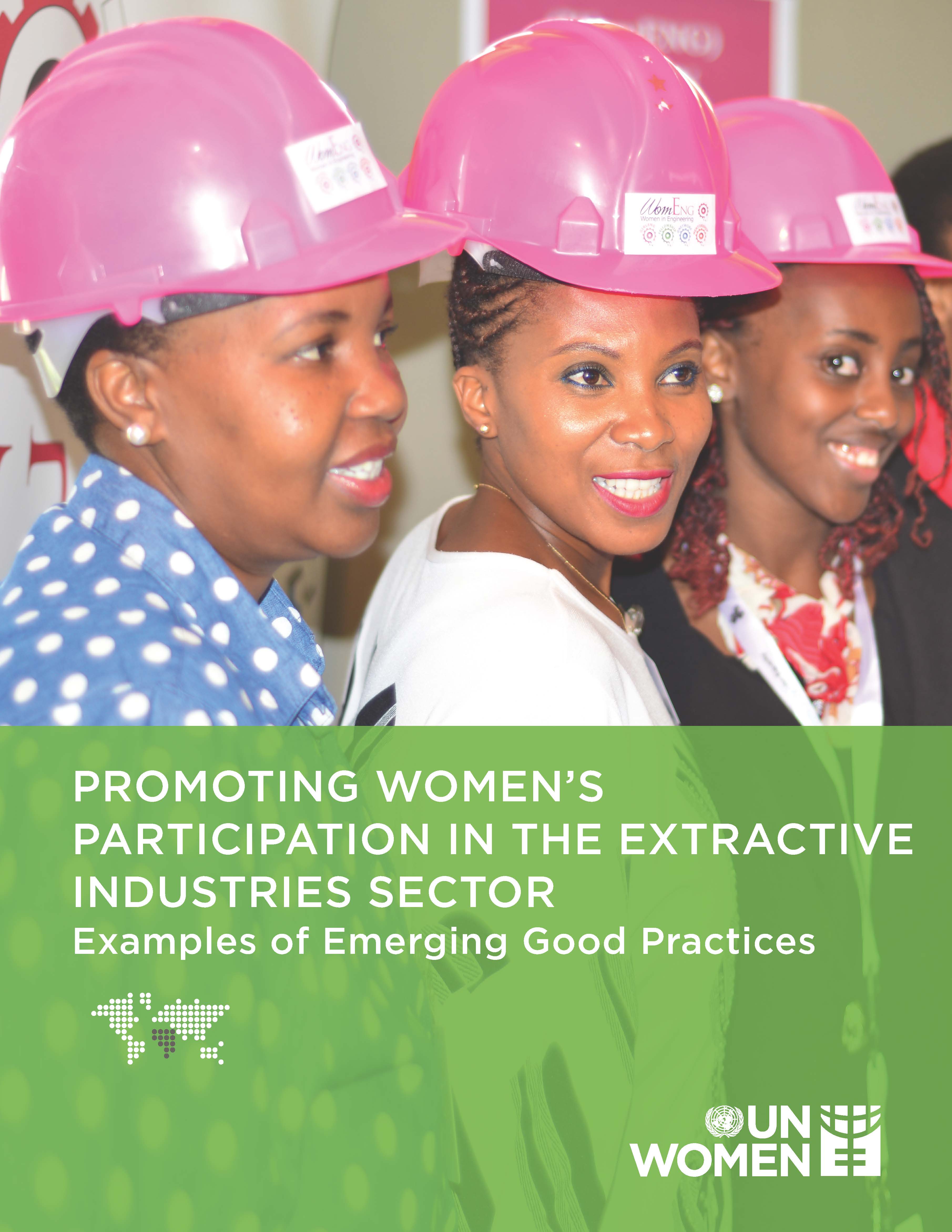
Promoting Women's Participation in the Extractive Industries Sector: Examples of Emerging Good Practices

The year 2015 marked a defining moment for the global development effort with the adoption of the SDGs in September. While countries in Eastern and Southern Africa have made progress against the MDGs, gaps remain and several issues that were not part of the MDG framework will be taken up by the SDGs, such as urbanization, resilience, inequality and governance. The new development agenda has been considerably broadened and comprises 17 SDGs, 169 targets and about 300 indicators with a stand-alone goal of gender equality and empowerment of women.
The extractive industries (EI) remains a male-dominated industry as compared to the other industries in Africa. It is important to involve women in it because women have the same “right to development” as men, so if EI diminish their access to economic and social development, this human right has been violated. Since women are also often the linchpins of their communities, with key roles in ensuring the health, nutrition, education and security of those around them, investing in women and assuring their participation is not only key for their own development, but also for the socioeconomic development of their families and communities.
There is a clear development case for investing in women, and ensuring their access to resources. Where women have better access to education, they are more likely to delay marriage and childbirth, reduce their risk of contracting or spreading HIV and AIDS and earn more money (World Bank Extractive Industries and Development Series #8, August 2009). There is also a clear business case for bringing women to the heart of extraction. Gender disparities in the EI can have significant cost implications for the industry. Gender-related initiatives, such as increasing female employment opportunities and community development programmes, help reduce costs, improve efficiency, and improve company-community relations while freeing up management time to address the core business at hand.
A documentation of good practices on gender and the extractive industries will therefore help guide governments, the private sector, civil society organizations and other stakeholders in developing policy, programmes and legislation that will do a better job of addressing challenges facing women affected by—and hoping to benefit from—the extractive industries sector. This publication on emerging good practices is a valuable contribution to exploring solutions and taking them to scale to engender the extractive industries in Africa.